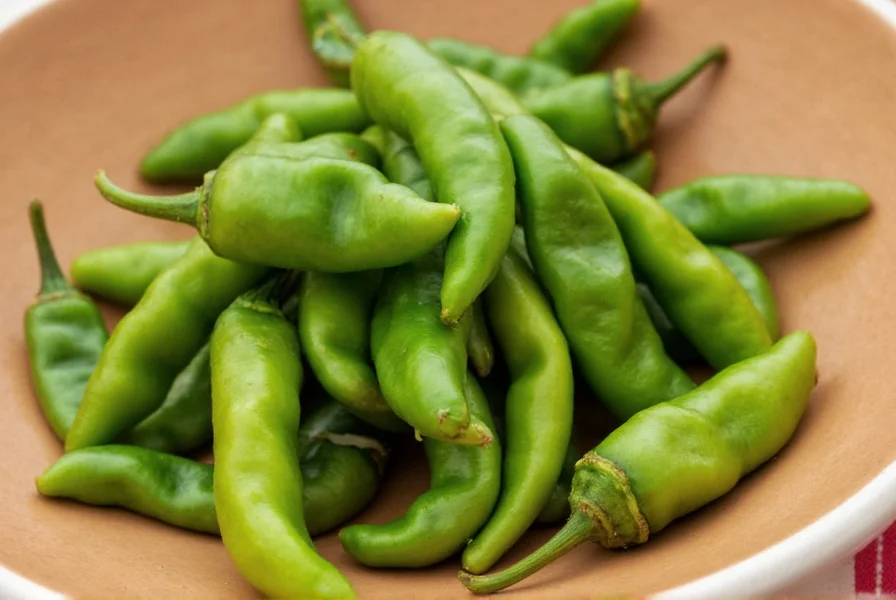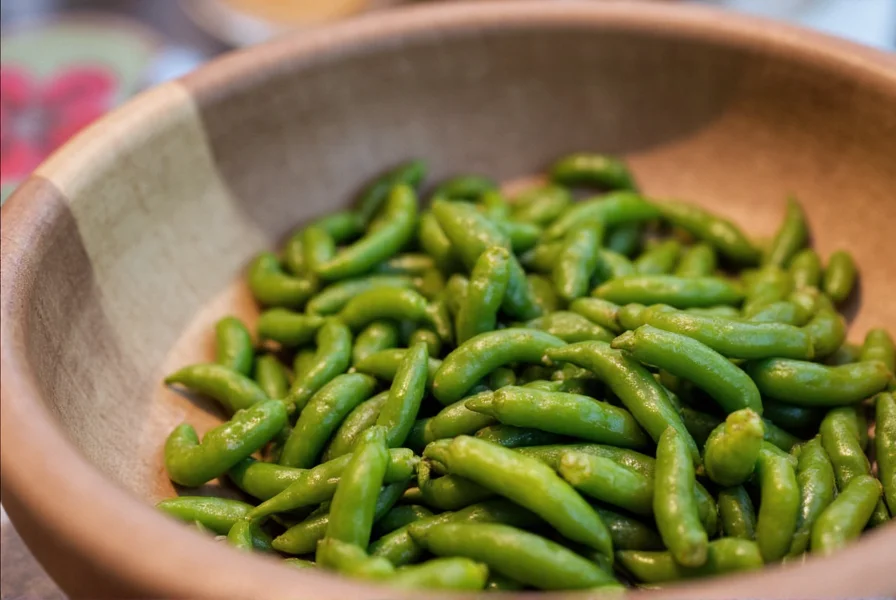The Sizzling Secret of the Southwest: Why New Mexican Green Chili is Stealing the Spice Spotlight
If you’ve ever bitten into a warm tamale dripping with New Mexican green chili, you know that this isn’t just a condiment — it’s an experience. Spicy, tangy, smoky, and sometimes sweet, this iconic pepper has been fueling Southwestern cuisine for generations. But what makes it so special? Is it the soil of New Mexico? The unique blend of heat and flavor? Or maybe the stories behind every harvest?
Whether you're a seasoned spice hunter or someone who's just getting started in the world of peppers, this guide will take you on a flavorful journey through everything you need to know about New Mexican green chili — from its fiery origins to how you can bring its magic into your own kitchen.
Table of Contents
- What Exactly is New Mexican Green Chili?
- A Taste of Tradition: The History Behind the Heat
- Flavor Profile: What Makes It So Irresistible?
- How to Use New Mexican Green Chili in Everyday Cooking
- Buying Guide: Picking the Perfect Pepper
- Pro Tip: Roasting Your Own Green Chilies at Home
- Fresh vs. Frozen vs. Canned: Which One Should You Choose?
- Top 5 Recipes to Try with New Mexican Green Chili
- Is New Mexican Green Chili Good for You?
- Beyond the Kitchen: How Chili Brings Communities Together
- The Future of Flavor: Will Green Chili Stay Popular?
- Conclusion: Embrace the Burn, Celebrate the Culture
What Exactly is New Mexican Green Chili?
The New Mexican green chili (Capsicum annuum) is a cultivar native to, you guessed it, New Mexico. Known locally as “chile,” it comes in various heat levels but generally sits between 1,000–5,000 Scoville Heat Units (SHU), making it milder than a habanero but spicier than a bell pepper.
Grown primarily in the Hatch Valley region of New Mexico — affectionately known as the “Chili Capital of the World” — these chilies are prized for their balanced flavor profile. Unlike many other hot peppers, the heat doesn’t overpower; instead, it complements a natural sweetness and subtle earthiness.
A Taste of Tradition: The History Behind the Heat
Long before New Mexican green chili became a staple in Tex-Mex restaurants across the U.S., it was already a central part of Indigenous diets and rituals. The Pueblo tribes were among the first to cultivate these peppers thousands of years ago, using them not only for food but also for medicinal purposes and spiritual ceremonies.
When Spanish explorers arrived in the 16th century, they adopted the use of chili peppers, eventually blending them into European-style dishes. Over time, the fusion evolved into what we now recognize as New Mexican cuisine — a bold, colorful celebration of flavor and culture.
Flavor Profile: What Makes It So Irresistible?
Imagine biting into a roasted pepper that starts off grassy and fresh, then gives way to hints of garlic and onion, followed by a lingering warmth that tingles just enough without knocking you over. That’s the signature of a high-quality New Mexican green chili.
Here’s a breakdown of its key flavor components:
| Flavor Note | Description |
|---|---|
| Grassy/Fresh | Noticeable when raw or lightly cooked |
| Smoky | Develops when roasted |
| Sweetness | Especially pronounced in ripe or canned versions |
| Spice | Moderate heat, varies by variety |

How to Use New Mexican Green Chili in Everyday Cooking
From breakfast burritos to enchiladas, green chili adds a punch of flavor that can transform even the simplest dish. Here are some of our favorite ways to enjoy it:
- Burritos & Tacos: Stir into scrambled eggs or spoon over grilled chicken for a zesty twist.
- Enchilada Sauce: Blend roasted chili with garlic, cumin, and a splash of cream for a silky sauce.
- Stews & Soups: Add a kick to posole or simmer into a classic New Mexican green chile stew.
- Mac ‘n’ Cheese: For a spicy upgrade, stir in chopped canned green chili.
- Cocktails: Yes, really! Infuse tequila with roasted chili for a fiery margarita.
Buying Guide: Picking the Perfect Pepper
Not all green chilies are created equal — especially when it comes to New Mexican varieties. Here’s how to choose the best ones whether you’re shopping in person or online:
| Buying Method | What to Look For | Recommended Brands/Types |
|---|---|---|
| Fresh | Tight skin, firm texture, glossy color | Hatch Brand, Sandia Chile Co. |
| Frozen | No ice crystals, uniform size | Ortega, Great Value (Walmart) |
| Canned | Thick sauce, chunky pieces | Rosarita, Las Palmas |
Key Features to Consider:
- Heat Level: Look for mild, medium, or hot labels if available.
- Roasted vs. Unroasted: Roasted peppers have deeper flavor but less brightness.
- Origin: True Hatch Valley chilies often come with a premium price tag — worth it if you can find them.
Pro Tip: Roasting Your Own Green Chilies at Home
Roasting your own green chilies might seem intimidating, but it’s actually quite simple — and totally worth the effort. Here’s how to do it:
- Preheat your oven to 400°F (200°C).
- Place whole chilies on a baking sheet and roast for 15–20 minutes, turning occasionally until blistered and charred.
- Transfer to a bowl and cover with plastic wrap or a towel to steam for 10 minutes.
- Peel the skins off gently (they’ll slip right off after steaming).
- Remove stems and seeds — or leave some if you want extra heat.
- Chop and freeze for later use!
Fresh vs. Frozen vs. Canned: Which One Should You Choose?
It’s a common question: should I buy fresh, frozen, or canned? Let’s break down the pros and cons of each:
| Type | Pros | Cons |
|---|---|---|
| Fresh | Best flavor, perfect for roasting | Seasonal, more work to prepare |
| Frozen | Pretty much ready to use, consistent quality | Can be slightly mushier |
| Canned | Most convenient, longest shelf life | Often saltier, less texture |
Top 5 Recipes to Try with New Mexican Green Chili
Ready to get cooking? These recipes highlight the versatility and richness of New Mexican green chili:
- Green Chili Chicken Enchiladas – A crowd-pleasing classic.
- Breakfast Burrito Bowl – Loaded with scrambled eggs, black beans, avocado, and a generous drizzle of green chili.
- Green Chili Mac & Cheese – A creamy, spicy upgrade to a childhood favorite.
- Chili Verde Pork Stew – Slow-cooked until tender, packed with flavor.
- Spicy Margarita with Chili Rim – A cocktail that bites back.
Is New Mexican Green Chili Good for You?
Absolutely — and here’s why:
- Rich in Vitamin C: Helps boost immunity.
- Contains Capsaicin: May help reduce inflammation and aid metabolism.
- Low in Calories: Perfect for healthy eating without sacrificing flavor.
- High in Fiber: Especially when eaten with the skin or in sauces.
Beyond the Kitchen: How Chili Brings Communities Together
In New Mexico, chili isn’t just food — it’s a symbol of identity. Annual festivals like the Hatch Chile Festival draw thousands of visitors, and local cook-offs turn friendly rivalries into fiery showdowns.
There’s something deeply communal about sharing a plate of chili-laden food. Whether it’s during harvest season or a Sunday family dinner, chili bridges generations and cultures in a way few ingredients can.
The Future of Flavor: Will Green Chili Stay Popular?
With the rise of global interest in regional spices and authenticity in cooking, New Mexican green chili is more popular than ever. From gourmet chefs to home cooks, everyone wants a taste of that smoky, spicy goodness.
As climate change impacts farming and supply chains shift, there may be challenges ahead — but the enduring love for green chili shows no signs of fading. If anything, it’s evolving into a beloved icon of American regional cuisine.
Conclusion: Embrace the Burn, Celebrate the Culture
So, whether you're adding a dollop of canned green chili to your burger or roasting your own for a weekend stew, remember: you’re not just spicing up your meal — you’re participating in a centuries-old tradition.
The next time you see that familiar label — “New Mexican green chili” — grab it, savor it, and share it. Because good flavor deserves to be celebrated — and the story behind every bite is one worth telling.











 浙公网安备
33010002000092号
浙公网安备
33010002000092号 浙B2-20120091-4
浙B2-20120091-4